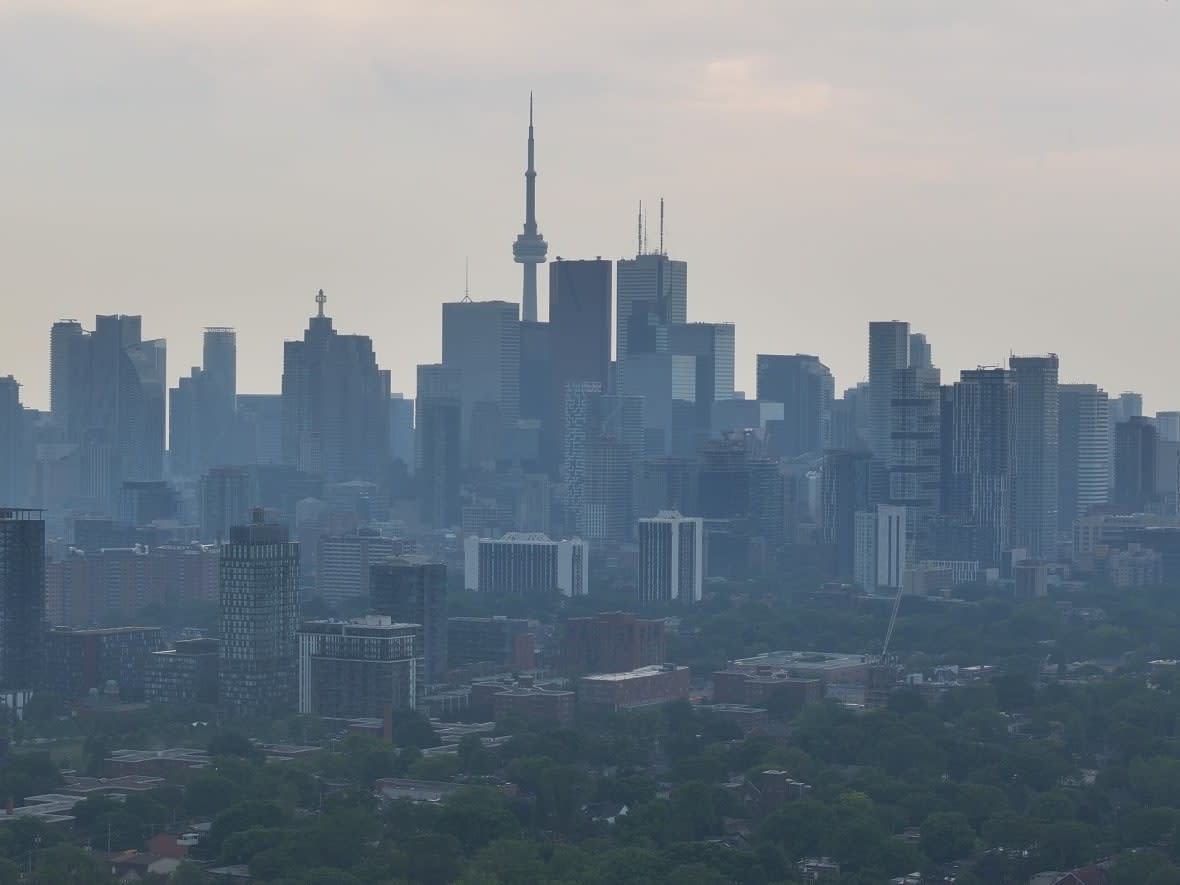Environment Canada ends special air quality statement for Toronto, but risk still moderate

Environment Canada has ended its special air quality statement for Toronto Friday, but still predicts a moderate risk to health, meaning residents should monitor for any signs of illness.
The weather agency forecasts that the city will reach a five out of the 10-point Air Quality Health Index (AQHI) scale on Friday. A five is considered to pose a moderate risk to health, which according to the scale, means that the people do not need to tweak their outdoor activities unless they experience symptoms from breathing in the polluted air, like a sore throat.
In this case, residents considered to be at-risk, which include those who have lung disease like asthma, older people and children, and pregnant people, should still consider reducing their outdoor activities if they feel unwell.
Yoseph Mengesha, a metrologist with Environment Canada, told CBC Toronto the concentration of pollutants in the air has lowered since Wednesday and Thursday, when the city was under a high risk alert.
"The winds have shifted, before it was from the north and north east," he said. Winds are now from the north west, bringing in some cleaner air. "But we still have pockets of smoke slightly mixing to the ground," said Mengesha.
For Saturday, Environment Canada is predicting the conditions to be a four out of ten on the AQHI scale, signalling the city could soon emerge from the smoke that descended earlier in the week from wildfires in Quebec and other parts of Ontario.
The statement ended after being in place since Tuesday morning. Smoke won't be widespread on the weekend, but there's a small possibility some smoke could emerge from continued fires in north eastern Ontario, said Mengesha.
Steven Flisfeder, a warning preparedness meteorologist with Environment Canada, told CBC News Thursday that multi-day air quality concerns are unusual for Toronto.
While he said it's a "big start" to fire season, it could be something residents should come to expect for the future.
Environment Canada warns of ongoing fire season
Much of southern Ontario is seeing improved conditions and the AQHI scale has fallen to an "acceptable level" at this point, said Gerald Cheng, a warning preparedness meteorologist with Environment Canada during a media briefing Friday. The amount of pollutants in the air have lowered as well.
WATCH: How does poor air quality affect your health?
Cheng referred to particulate matter, specifically PM2.5, which can be harmful when inhaled. That's one of the types of particles that have been in the air this week, he explained.
"We still forecast some [PM2.5], but it will be of a lesser concentration level on Saturday," he said. Rain is also predicted starting late Sunday in southern Ontario — but Cheng warned precipitation could be isolated, and may also bring lightning, which could worsen fires.
Many wildfires are in northern Ontario, north of the St. Lawrence River and some near the Ottawa valley, which are unusual for this time of year, he explained.
Cheng said that Indigenous communities in northern regions have frequently experienced poor air quality due to forest fires, but it is unique for the smoke to reach larger metropolitan areas.
With wildfire season continuing on, so could the pollutants, he explained.
"As long as the fires are burning, there is a chance the smoke could come back," he said.


